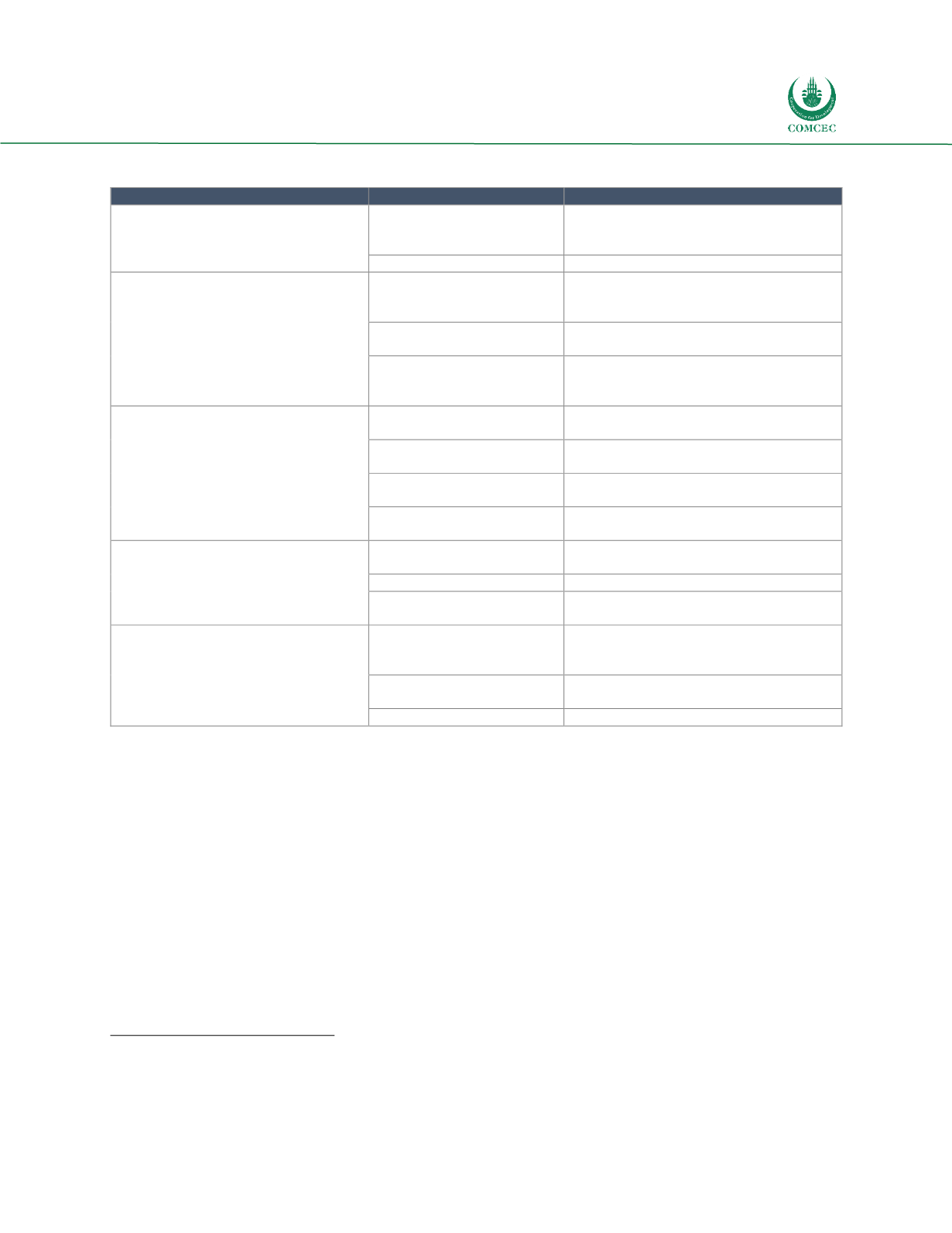

Destination Development and
Institutionalization Strategies
In the OIC Member Countries
171
Table 37: DMO Key Performance Indicators
Measurement Approach/Model
KPI
Measurement
Visitor Metrics
Visit Statistics
Number of Visitors
Average Length of Stay
Tourist Spending
ROI
Ratio of Visitor Spending to DMO Spending
Marketing Communications
Activity
Number of Programs/Campaigns
Total Reach
Total Frequency
Performance
Advertising Awareness
Brand Image Changes
Productivity
Conversion Rates
Cost-per-Conversion Rate
Return on Investment
Consumer-Based Brand Equity (CBBE)
Brand Salience
Top of Mind
Decision Set
Brand Associations
Cognitive Attributes
Affective perceptions
Brand Resonance
Previous Visits
Intent to Visit
Brand Loyalty
Repeat Visits
Word of Mouth Referrals
Organizational Effectiveness
Appropriateness of Objectives Clarity of Objectives
Feasibility of Objectives
Achievement of Objectives
Progress towards Objectives
Implementation Efficiency
Efficient Resource Allocation
Cost-effectiveness
Stakeholder
Tourist Evaluation
Satisfaction with Access to Services
Satisfaction with Accommodation
Satisfaction with Transport
Local Industry Evaluation
Satisfaction with Destination Promotion
Satisfaction with Industry Support
Local Community Evaluation
Satisfaction with Quality of Life
Source: DinarStandard analysis
Each of the metrics listed above is measured by different entities. For example, visitor metrics are
gathered on an on-going basis by immigration officers as well as tourist intercept surveys. Visitor
monitoring programs are currently used by DMOs in many destinations to track visitor
arrivals.
455
Marketing promotions conversion rates and cost per conversion should be monitored
by DMOs per campaign as well as on an annual basis and the results should be included in the
DMOs annual report.
456
Consumer-Based Brand Equity (CBBE) is measured through primary
research such as interviews, focus groups and surveys.
457
Organizational effectiveness is
measured through an independent marketing audit.
458
Whereas stakeholder satisfaction is
measured through surveys, including tourist satisfaction surveys.
In terms of consequences of poor performance, the metrics should be linked to the CEO’s and
staff’s performance appraisals, with poor ratings resulting in disciplinary actions or termination.
455
Pike, S. (2008).
Destination Marketing: an Integrated Marketing Communication Approach.
London: Routledge.
456
Destination Marketing Association International (2011).
Standard DMO Performance Reporting: A Handbook for DMOs.
1-42.
457
Pike, S. (2008).
Destination Marketing: an Integrated Marketing Communication Approach.
London: Routledge.
458
Ibid.
















